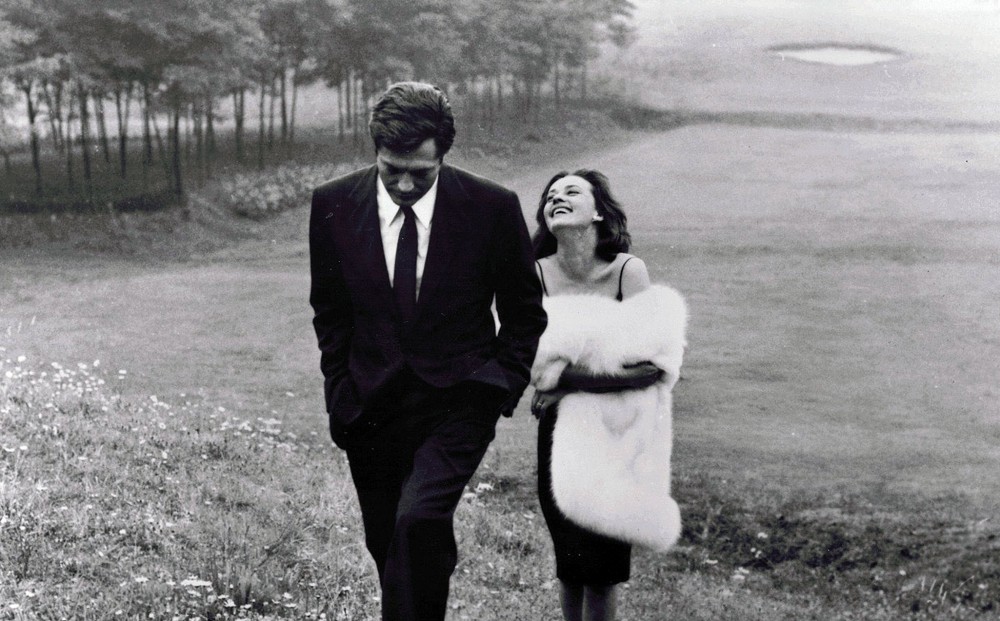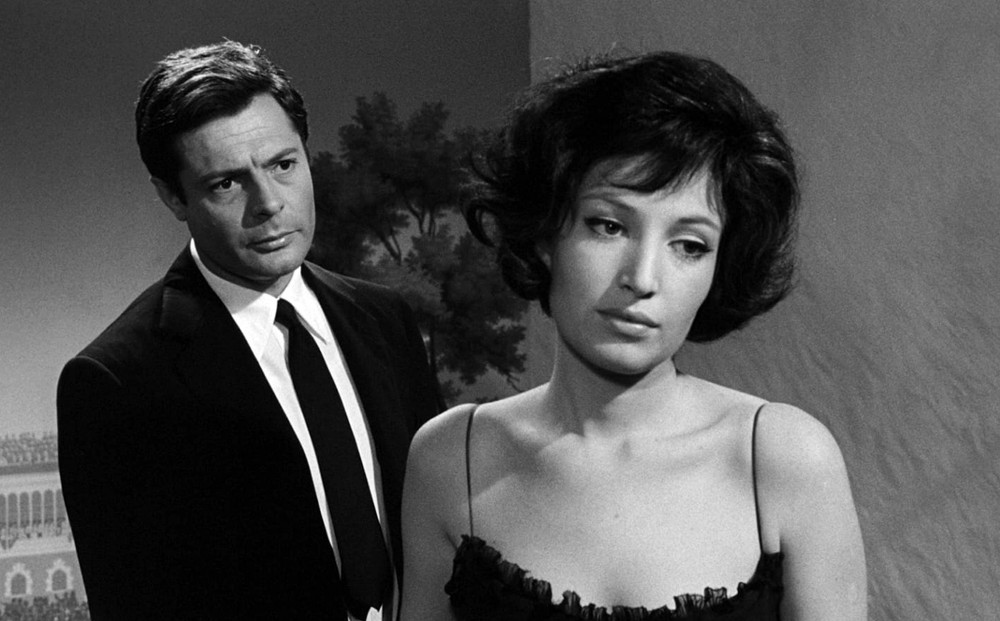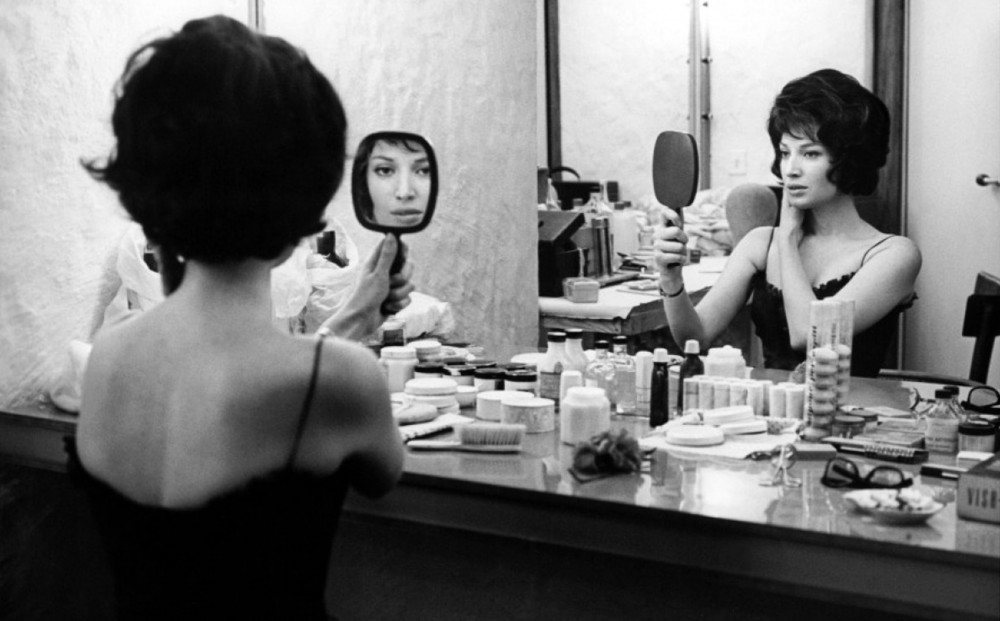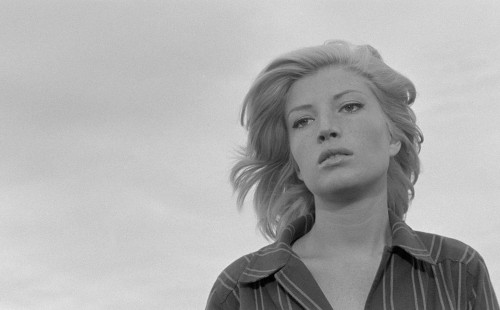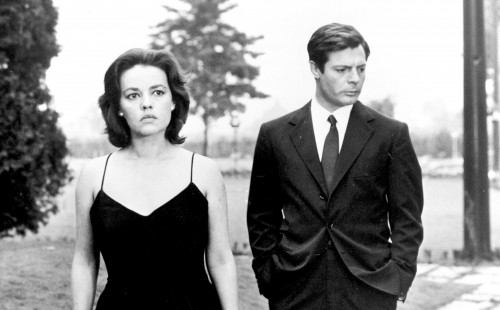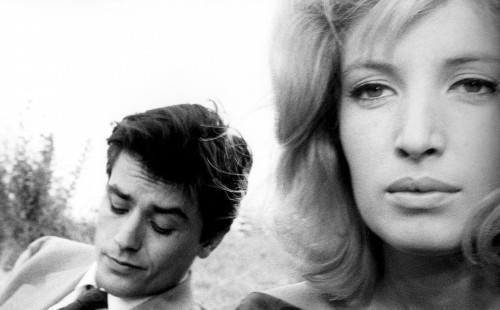Michelangelo Antonioni’s
LA NOTTE
5:20
Saturday, May 11
(1961) “I no longer have ideas. Only memories.” A day and a night in the life of a troubled marriage, set against Milan’s gleaming modern buildings, its gone-to-seed older quarters, and a sleek modern estate, all shot in razor-sharp b&w crispness by the great Gianni di Venzano. Writer Marcello Mastroianni and his wife Jeanne Moreau visit a dying friend, drop by a night club with an amazing Black contortionist dancer, then wind up at an all-night party at a suburban villa, where Mastroianni flirts with seeming playgirl Monica Vitti, while Moreau tries for a sports car affair of her own, until a tormented dawn encounter at a deserted golf course. Perhaps Antonioni’s most compassionate examination of the emptiness of the rich and the difficulties of modern relationships (minority naysayer Pauline Kael’s review was headlined “The Come-Dressed-As-the-Sick-Soul-of-Europe Parties”); while its tour-de-force, Moreau’s walk through the streets of Milan, “has its place in any film anthology” (Mira Liehm). DCP. Approx. 122 min.
Part of Michelangelo Antonioni’s Alienation Trilogy.
Reviews
“Because they are married, and because they are Marcello Mastroianni and Jeanne Moreau–above all, because she is Moreau–La Notte is the gravest movement in Antonioni’s trilogy, the one with L’Avventura and L’Eclisse as its wings… Moreau’s abandoned face is one of the greatest images of twentieth-century disaster.”
– David Thomson
“[Antonioni] made his beautiful, skeptical, ironic muse Monica Vitti the art house pin-up of the 1960s and created a new Italian cinema – cool, oblique, Marxist – to succeed Neo-Realism.”
– Philip French, The Guardian
“The world of La Notte isn’t an absurd or meaningless one; it’s one that hides its profoundest meaning in plain sight, that owes its almost incalculable profundity to the immediacy of its visual patterns and abstractions, and that Antonioni both damns and redeems in the same gesture, the same moment, by means of his own art.”
– Richard Brody, The New Yorker

